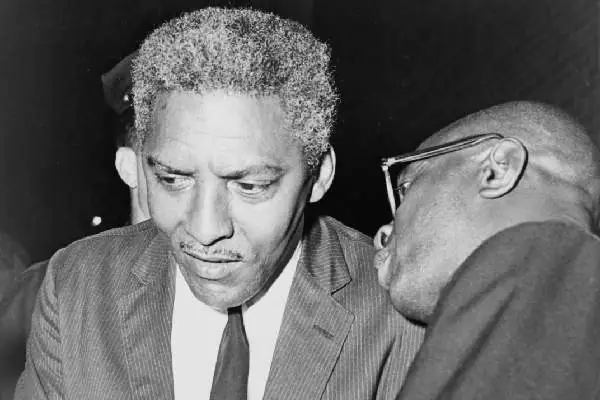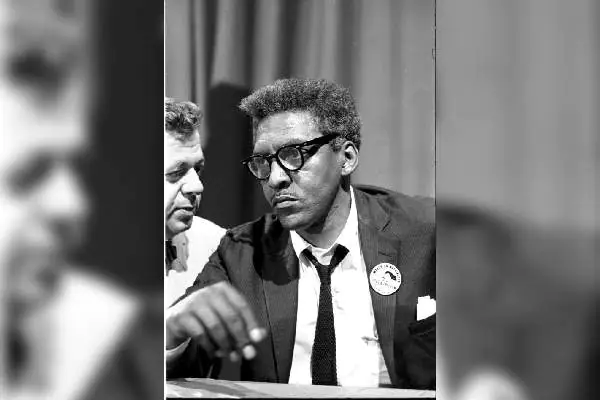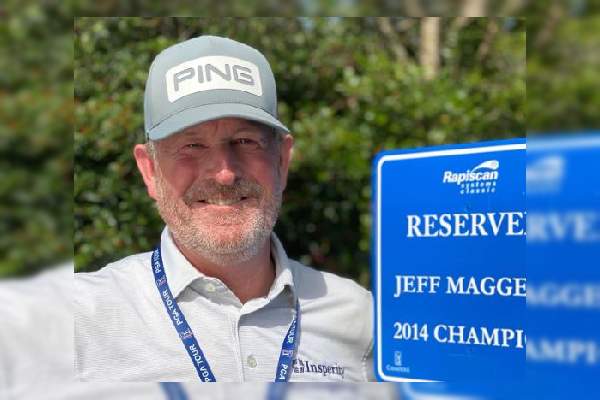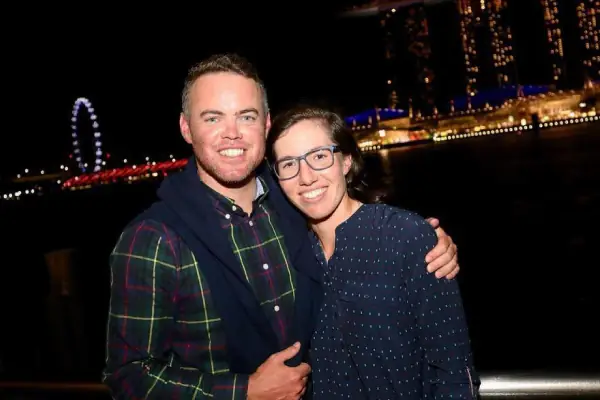The Untold Story of Bayard Rustin: The Unsung Hero of The Civil Rights Movement

Bayard Rustin. Image Source: Instagram.
Bayard Rustin played a crucial role in the American Civil Rights Movement; however, his name and contributions are often overlooked by historians. He was responsible for organizing the famous March on Washington in 1963 and acted as an advisor to Martin Luther King Jr., providing guidance on nonviolence principles.
The impact of Rustin’s legacy is truly remarkable. Despite making significant efforts to challenge stereotypes, Rustin faced discrimination within the movement due to his homosexuality and socialist beliefs. This unjust treatment marginalized his invaluable contributions.
In this blog post, we aim to shine a light on Bayard’s untold story – a true unsung hero of the Civil Rights Movement—highlighting his impressive activism regarding democracy, labor rights, and social justice.
The Man Behind the Movement: Discovering Rustin’s Early Life and Activism
Bayard Rustin’s dedication to social justice and pacifism was influenced by his upbringing and early life experiences. He was born in West Chester, Pennsylvania 1912, into a Quaker family that prioritized peace, fairness, and equal rights.
During his youth, Rustin actively participated in various civil rights groups and organizations advocating for nonviolent resistance. One of these notable affiliations was with the Fellowship of Reconciliation, where he learned about the principles behind nonviolence.
As World War II approached, Rustin made the difficult decision to declare himself a conscientious objector. This stance put him at odds with many prominent figures within the Civil Rights Movement who believed supporting the war effort against fascism and racism was crucial.
Despite facing opposition from fellow leaders in activism during this time period, Rustin remained steadfastly committed to his core beliefs rooted in peaceful approaches toward achieving societal change. These early experiences greatly shaped not only his strategic thinking but also became instrumental elements in molding him as an influential leader.
Orchestrating History: How Bayard Planned the Iconic March on Washington
One significant accomplishment associated with Rustin’s participation in the Civil Rights Movement was his crucial role in organizing the renowned March on Washington for Jobs and Freedom, which took place in 1963.
Rustin’s strategic planning and coordination of logistics were instrumental in ensuring the success of the event, which drew over 250,000 people to the National Mall in Washington, D.C. Rustin worked tirelessly behind the scenes, negotiating with government officials, coordinating transportation, and managing the day-to-day logistics of the march.
Furthermore, he played a vital role in the selection process of speakers for the event and ensured that it preserved an atmosphere characterized by tranquility and nonviolence.
Although facing criticism from certain figureheads within the Civil Rights movement due to his homosexuality and past affiliations with communism, Rustin’s skills in guiding and coordinating were indispensable towards securing victory during the March on Washington. This momentous occasion holds immense importance in American history.
ALSO READ: Unraveling The Curious Tale Of The Mid-Century Onion Debacle: A Pungent Mishap
The Ostracized Hero: Rustin’s Struggle with Discrimination Within the Civil Rights Movement
Despite making significant contributions to the Civil Rights Movement, Bayard faced extensive discrimination and marginalization from certain leaders within the movement due to his homosexuality and socialist beliefs.
Rustin’s sexual orientation was exploited as a means to undermine both him and his work, resulting in him being relegated to working behind the scenes rather than assuming a more prominent leadership role.
In 1953, the social activist found himself arrested for engaging in homosexual activity—an event that was leveraged against him to tarnish his reputation and credibility among activists.

Bayard Rustin. Image Source: Instagram.
Furthermore, Rustin’s advocacy for socialist causes further estranged some Civil Rights leaders who held views that regarded communism as an existential threat to American democracy.
Beyond Civil Rights: Rustin’s Radical Vision for Economic Justice and Equality
Bayard Rustin’s vision for social justice and equality went beyond the fight for civil rights and encompassed a broader commitment to economic justice and equality. In 1966, Rustin proposed the Freedom Budget for All Americans, which called for massive investments in education, healthcare, and social welfare programs to eradicate poverty and inequality in America.
The Freedom Budget represented a significant shift from conventional civil rights advocacy, which primarily concentrated on matters related to racial discrimination and segregation. Rustin’s perspective on economic fairness and equity was grounded in his conviction that poverty and inequality were systemic problems affecting all individuals in the United States, irrespective of their race or ethnic background.
Although the complete implementation of the Freedom Budget never happened, it functioned as a model for modern progressive activists and still serves as a source of motivation for those who advocate for government-driven initiatives to build a fairer and more equitable society.
Similarly, read about the beautiful story of an interracial couple in our article about Susan Ahn Cuddy.
The Unforgettable Legacy: How His Commitment to Nonviolence Continues to Inspire Social Justice Fighters Today
The enduring dedication of Bayard Rustin to promoting social justice and advocating for nonviolent approaches remains a source of inspiration for contemporary activists and organizers. His adept strategic planning skills and exceptional leadership during the Civil Rights Movement have set a precedent for effective activism which continues to be scrutinized and replicated by activists globally.
Rustin’s perspective on achieving economic fairness and equal treatment is still applicable in today’s society. Movements such as Black Lives Matter and Fight for 15 are actively working towards transforming the system to achieve systemic modifications and promote social justice, much like what Rustin advocated for.
Rustin’s unwavering dedication to nonviolence and conviction that direct intervention can bring about significant change offers a valuable framework for present-day activists who aim to confront deep-rooted injustices and disparities within our societal structures.
In spite of these obstacles, Rustin maintained his unwavering dedication to the principles of nonviolence and social equality and persistently labored for the advancement of civil rights until he passed away in 1987.
Black History…still.
It’s World History, too.The world should know about and learn from #BayardRustin. https://t.co/xfRkbWtT4l
— The Martin Luther King, Jr. Center (@TheKingCenter) March 2, 2021
Presently, Rustin is honored as a revered figure and an innovator who ardently advocated for justice and equal treatment without discrimination towards any individual’s sexual orientation or political affiliations.
Rustin’s impactful contributions serve as a testament to the transformative potential of activism and advocacy. His enduring legacy continues to inspire individuals who are committed to the pursuit of social justice, recognizing its ability to bring forth positive change in our world.
The Editors of Encyclopaedia Britannica. (2000, January 12). Bayard Rustin | Biography & Facts. Encyclopedia Britannica.
Rustin, Bayard. (2018, April 5). The Martin Luther King, Jr., Research and Education Institute.
Bayard Rustin. (n.d.). National Museum of African American History and Culture.
Bayard Rustin. (2023, March 7). Biography.
Podair, J. (n.d.). Meet Bayard Rustin, an often-forgotten civil rights activist, gay rights advocate, union organizer, pacifist, and man of compassion for all in trouble. The Conversation.
Cowan, J. (2020, February 5). Bayard Rustin, Gay Civil Rights Leader, Is Pardoned in California. The New York Times.
Did you notice an error ?
Please help us make corrections by submitting a suggestion. Your help is greatly appreciated!











